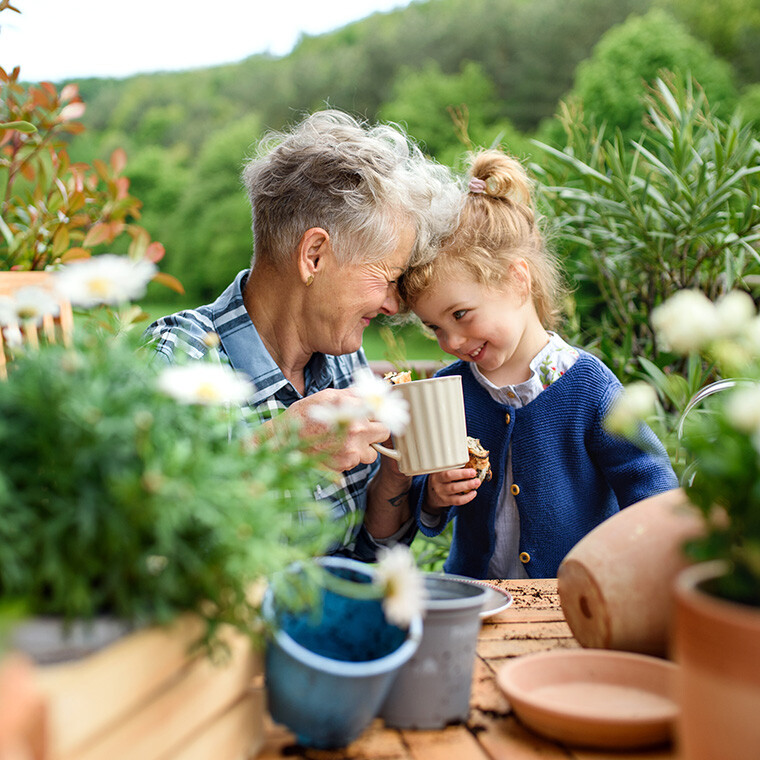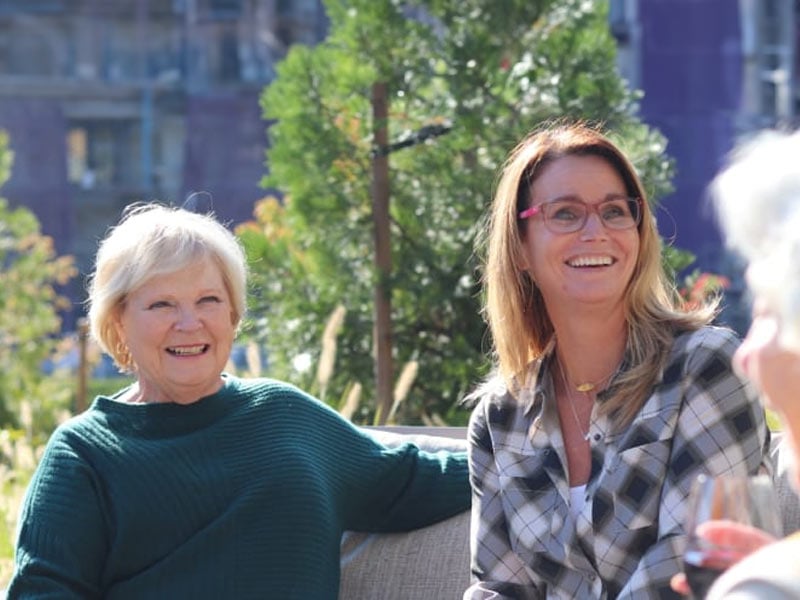More contagious and deadly than the flu, the coronavirus stepped on the scene in the US and turned life upside-down. Adults are on the front line (essential workers), working from home, or unemployed. Their kids are learning online, adjusting to cancelled sports, graduations and summer camps. Too many establishments are closed or slowly reopening with restrictions in place. All this to try and slow the spread of the virus. With all that’s going on, your family’s health and safety are likely a high priority. Many extended families, like aunts, uncles and grandparents, have had to adjust to not seeing their loved ones in person for several months.
This family-separation has become one of the most difficult challenges of sheltering in place for many Americans, especially those with fragile immune systems or those without family living under the same roof. The adjustment from being able to go out and visit with friends or family, has been hard for everyone, especially elderly relatives who more vulnerable and therefore the least likely to go anywhere or see anyone. Be that as it may, we know that to keep your loved ones healthy and safe during the COVID-19 pandemic, you have to limit your trips and visitors.
“Social distancing,” means many of us blocked off our visits to each other for the time being. FaceTime and other virtual meet-ups have been a great way to keep in touch, even if the learning curve of using technology to connect was high for some people in the beginning. Grandparents and older relatives tether us to the history of our families, much like gravity holds us steadfast to the Earth, even when we’re “upside down.” For this reason, it’s incredibly important that we all do our best to stay in touch virtually until we can be together again in person.
Here are some suggestions to make the most of your online get-togethers:
Tell family stories. If there is one thing children and adults have in common, it’s that we all love stories. If you have photographs of earlier generations to share, you can hold up photos while you FaceTime or Zoom. Bringing these memories to life creates connections, and recounting family stories keeps us tied to the past and to one another.
Schedule a time to connect. Knowing you have an “appointment” gives you (or your loved one) something to look forward to. Perhaps it’s one evening a week. Children might look back fondly on this time, when Grampa or Nana would read them a bedtime story via FaceTime.
Write letters. Writing letters is mostly a lost art, but receiving a letter in the mail reignites a certain thrill. Consider setting aside time each week to write a letter, as a way to stay in touch. Include photos of what you’re up to, or seeds you can plant in the garden together and watch grow, comparing notes on how the seeds are coming along.
Keep a positive mindset. It might seem like it’s been forever, but this too shall pass. The Mayo Clinic reports a number of health benefits associated with optimism, including a reduced risk of death from cardiovascular problems, less depression, and an increased lifespan. If ever there was a time to tap into the power of optimism, it is now. When you do connect with your loved ones through social distancing in an open space, or online, enjoy your time.
Practice random acts of kindness. Leave an envelope with a little gift for the Amazon or UPS delivery person who drops off your supplies outside your door. Or have a coffee delivered to your friend. Just like writing letters to your grandparent, the slower way of showing you care is back in style. Use these moments to your advantage and strive to be kinder and gentler with both yourself and others.
In times of constant negative messaging, you need an antidote so that you can keep a positive attitude and march forward with determination and hope. Be deliberate in activities that are positive, heartwarming, stress reducing and laughter inducing. Tell silly stories over FaceTime, send a letter, renew your commitment to family, or be kind to a stranger. Together, we’ll get through this and we may have stronger bonds because of this.











